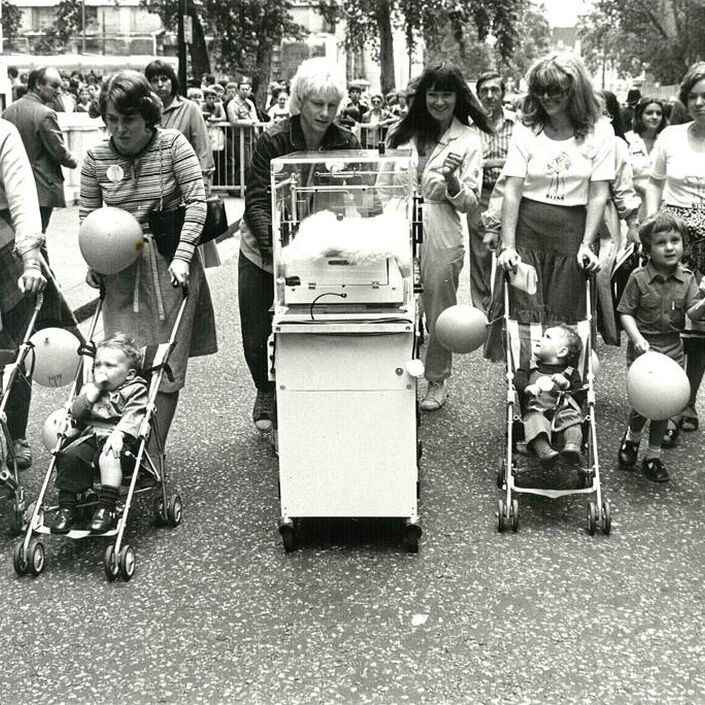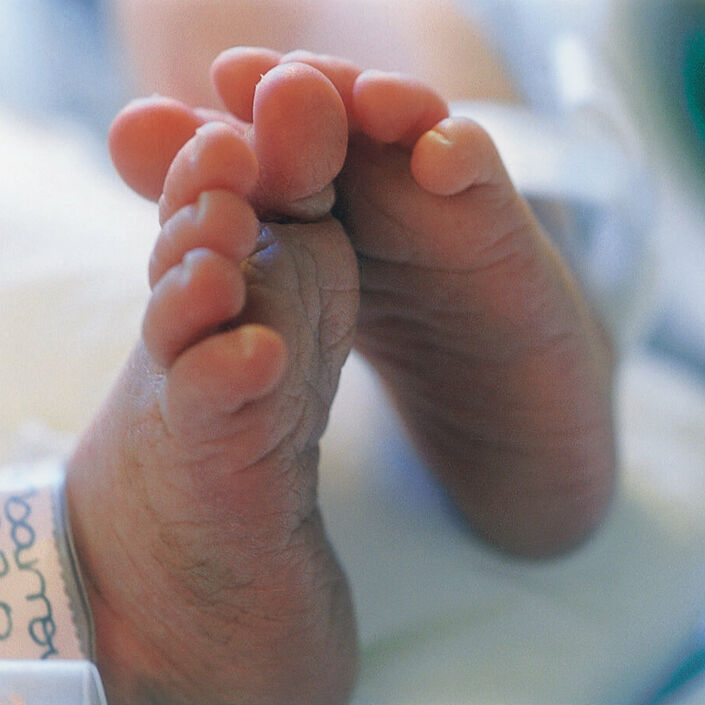In August 1979, a national newspaper article appeared spelling out the difficulties for newborn babies with problems at birth. They were at risk of dying, or becoming disabled, through lack of access to life-saving equipment and skilled care. The fear that the toll was running into thousands was to be confirmed in a Parliamentary Select Committee report published a year later.

It was entirely a matter of chance that I read the article. I bought that paper on that day because we were waiting to see the announcement of my father’s death. It was a rare occasion for my mother’s preferred paper to be on strike and she had chosen another.
A few days later a reader's letter from Mr Allan Chilvers suggested forming a group to campaign on this issue. 80 people wrote to offer help, including me. I was a new mother with a son aged nine months. Both of us had survived an extremely difficult birth intact. I had known that deep fear that things could go wrong at birth and my relief was enormous. I simply wanted to say thank you for the help I had received. It was a revelation to discover what a lottery it was for babies needing extra care. It seemed a matter of social justice to find a way to speak up for them.
When Allan suggested, during a Monday phone call at 8.00am, that I took action to build a campaign, I said yes. I had no idea then that, although a door had closed in my life through the loss of my father, another huge one was about to open for me and many other people I was about to meet.
I was very pleased to meet Joanna Bertorelli a very enthusiastic mother, who had already understood the scarcity of resources and donated equipment to the hospital that saved her own premature baby. We agreed to invite all those who had responded to Allan's letter to an inaugural meeting to see if we could get something going. So my kitchen table became a rather surreal hub of activity with letters, envelopes and stamps all over it - no email available in those days, just phones, paper and post. It was rather a journey into the unknown.
Allan arranged for a London hotel to lend us a room to meet on 7 November 1979, a dark and wet evening. I wondered what was running through the minds of people on their way there. Only three people knew or had met another person attending. 20 were able to come and from that group 12 men and women were available to become an executive committee.
None of us had worked for a charity before but it was quite extraordinary that, between all those who came together by chance that night and those who joined Bliss shortly afterwards, we had the necessary range of professional skills to get the charity going.
We wanted a forward looking and optimistic name for the charity to reflect its purpose and attract support. My husband, Philip Cheal, came up with the name Bliss. Joanna's cousin designed the logo.
Our central aims were to give every baby an equal start in life and to ensure that no baby died or became disabled at birth through lack of equipment and skilled care during the critical first moments and weeks of life.
It was a revelation to discover what a lottery it was for babies needing extra care. It seemed a matter of social justice to find a way to speak up for them.
We were honoured that a group of highly esteemed and expert Medical Advisers joined our cause, one of whom had been featured in the original newspaper article. With their advice, and as support for Bliss grew, we agreed that we would aim to redress the inequality of access to proper neonatal support through:
- Equipment donations to the hospitals considered to be in the worst position by our expert Medical Advisory Committee applying medical safeguards
- Supporting medical and nursing training
- Parent support for those in shock and dealing with a sick baby against all their expectations
Although we were volunteering our time, we were not amateur. This turned out to be vital to our later success in being able to make swift progress. The sense of commitment towards improving neonatal care by parents all over the UK, who had watched their own baby’s fight for life, is what I think drove the growing support for Bliss from the very beginning.
I will never forget the determination and unflagging effort to develop support at every level with volunteers and whole families devoting the equivalent of years of their life to giving other babies and their parents a better future.
Susanna would like to acknowledge the role of other founding members of Bliss, whose continuing contribution from the earliest stages helped set the charity off to a flying start: Josie Evans, Elizabeth Craig, Peter and Gillian Sandham, Bonnie Green, Marie Millett, Madeleine and the late Peter Mitchell


